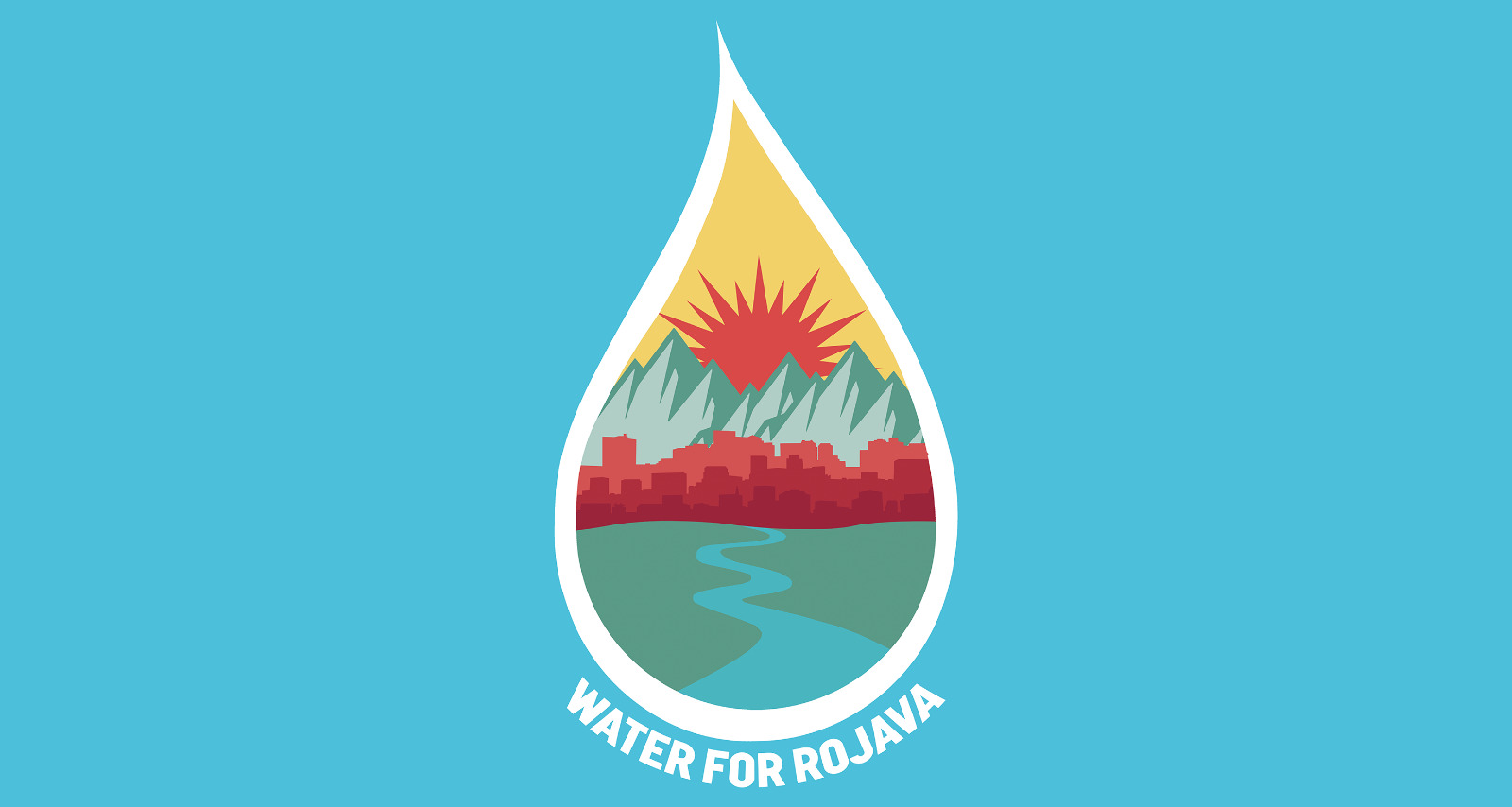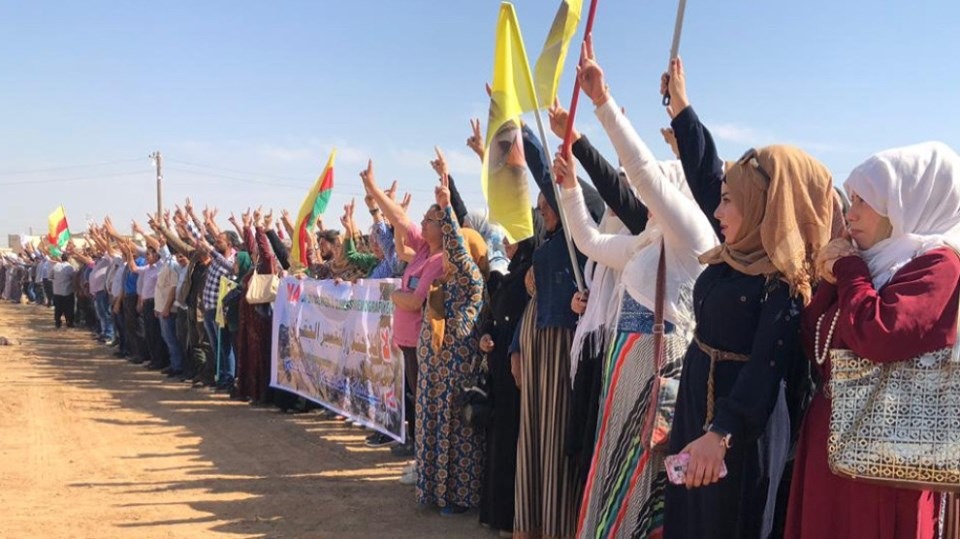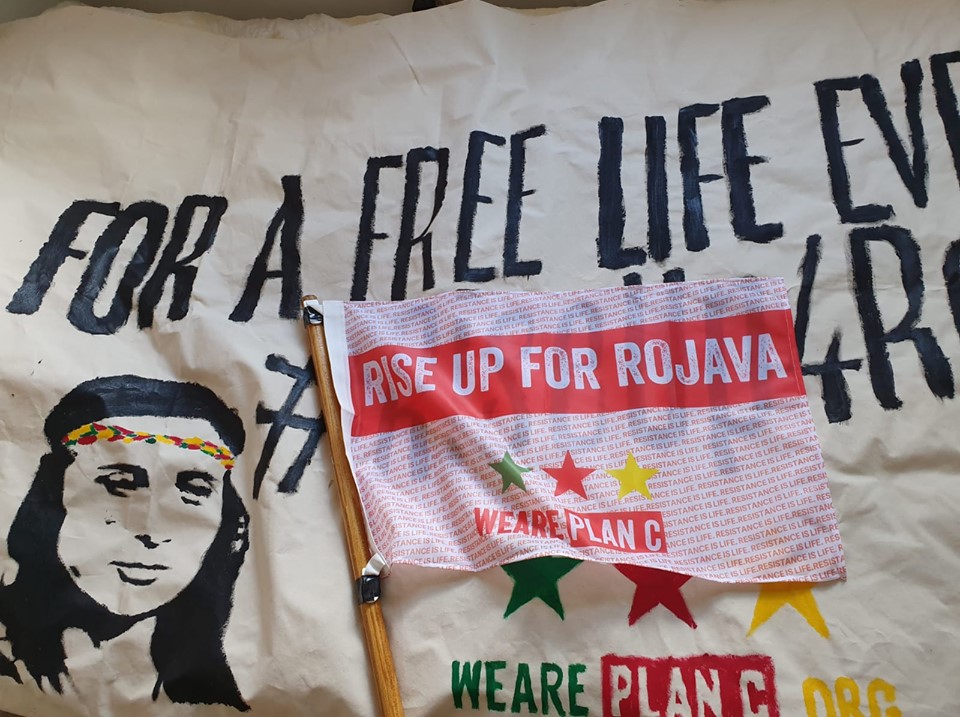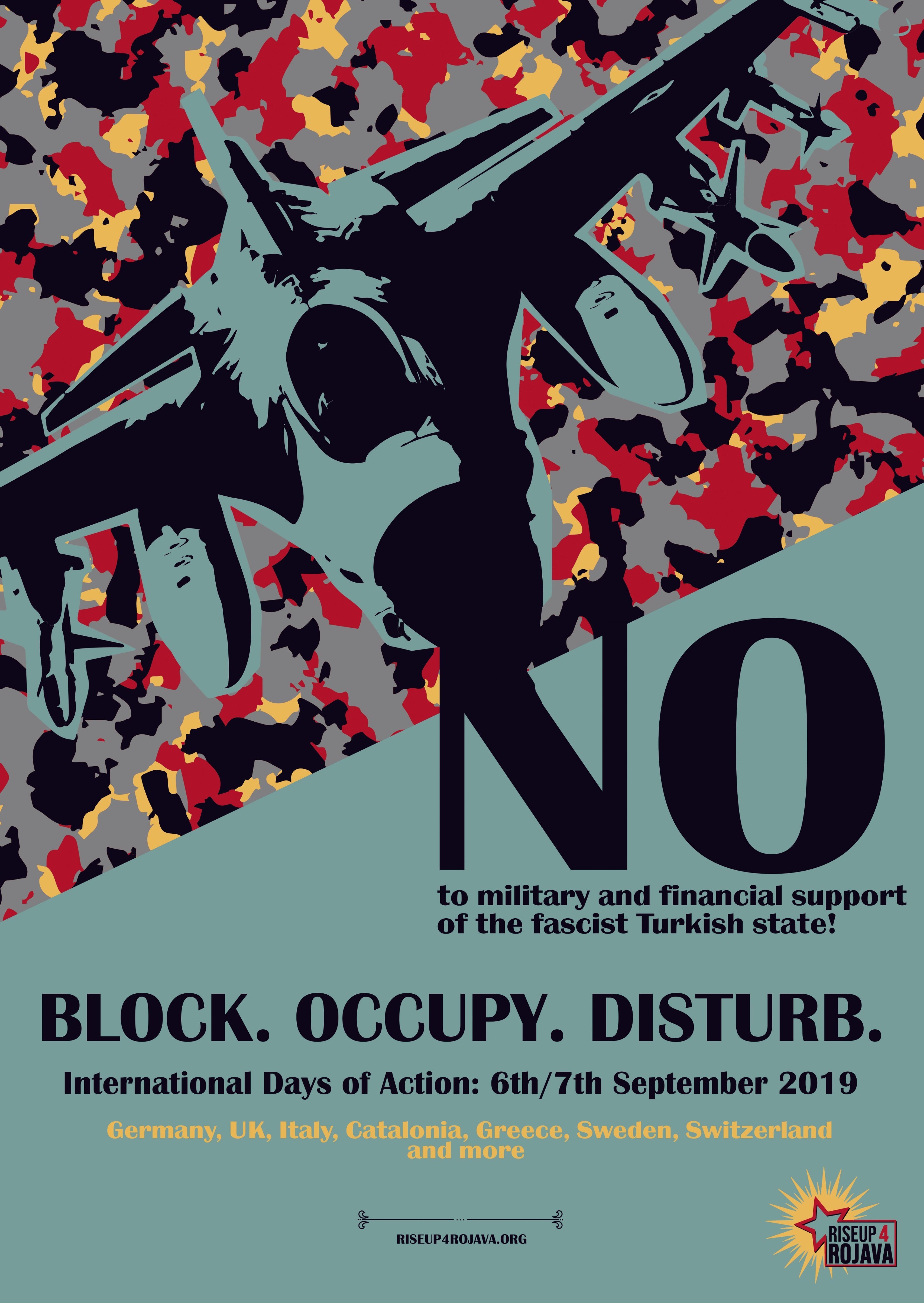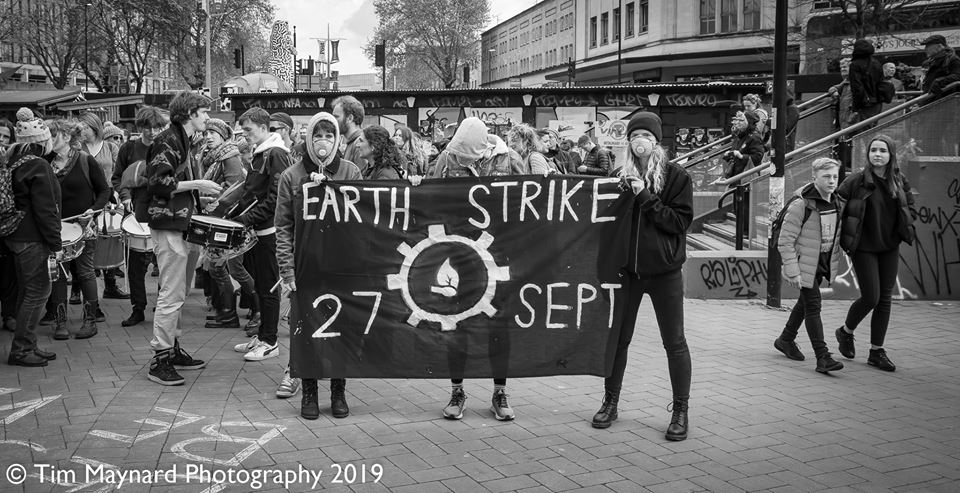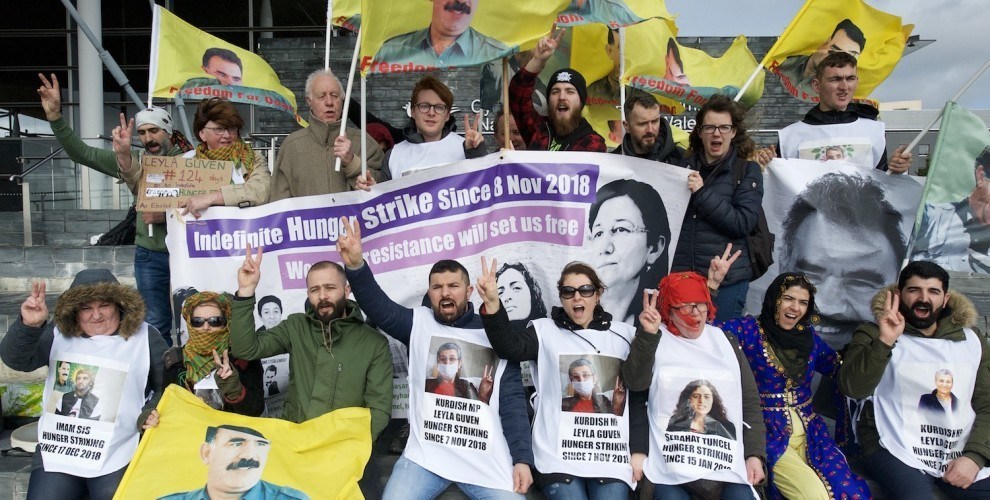A perspective from Plan C’s Kurdistan Cluster on the current struggle in North-East Syria, following the Turkish state’s invasion earlier this month. We’ve said before why the Women’s Revolution must be supported and defended, and others have powerfully argued the same in recent weeks. So, in this moment of existential crisis, we focus on addressing those who are ready or willing to give practical solidarity, but are confused or put off by agreements made by parts of the movement, and regional and global powers’ imperial games. We release this perspective ahead of World Resistance Day on November 2nd, when we and comrades across the world will rise up for Rojava.
Introduction
Following the Turkish state’s invasion of North-East Syria on the 9th of October, a familiar pattern has emerged: commentators across the political spectrum speaking as if events are only driven by nation-states, and especially by global imperial powers. For some in the liberal media the focus is even more narrow – not even the whole state is relevant, only the leader’s personality. Even radicals focused on the struggle on the ground, on the people building the women- and youth-led revolution of North-East Syria, including the northernmost regions known as Rojava (western Kurdistan), have spoken as if only states are relevant actors.
Nation-states do define struggle in fundamental ways, and the last few weeks have shown the enormous power concentrated in the hands of state elites by the capitalist world-system. But as people who believe in another possible world and are struggling to build one, we must be wary of any worldview that implies states make history by themselves. This is nothing less than the State’s own mentality, which only sees itself as relevant, and both attempts and pretends to subsume all of society.
In recent weeks, for example, the Turkish state has refused to use the word “ceasefire” – not because they’ve continued to attack regardless of these agreements, which they have, but because “ceasefire” refers to a stoppage between warring states. In Turkish officials’ worldview, therefore, naming the agreements “ceasefires” gives their non-state revolutionary opponents too high a status – instead they refer to ‘pausing the operation’. Such statist framings erase the agency of people in practical struggle: the Turkish state in particular, and the interstate system in general, start and stop invasions as they like, unaffected by people on the ground.
A statist mentality is to be expected in liberal media, and appears common sense when it comes to geopolitics too, but applied to North-East Syria’s Women’s Revolution its reactionary assumptions become clear. When revolutionary forces are mentioned at all, they’re treated as a single whole, in liberal media ‘the Kurds’, elsewhere sometimes reduced to the YPG/YPJ and Syrian Democratic Forces, sometimes the PYD and Syrian Democratic Council. Statements from one or another organisation are treated as the final word on hundreds of thousands of people in active struggle.
So, the SDF’s memo of understanding with the Assad regime, a purely military arrangement focused on defending Syria against the Turkish state invasion, was quickly presented as the immediate end of the democratic autonomous system, the death knell of the Women’s Revolution. In the face of millions of people whose everyday lives actually make up democratic autonomy, one memo, on a military arrangement still not fully implemented, which foresees some future negotiations but has the SDF and autonomous administration as fundamental red lines, is judged to have abolish the struggle overnight.
Of course the YPG/YPJ and SDF, and the PYD and SDC, are crucial to the revolution – but they are not the revolution, as they would be the first to point out. They’re treated like it because of the same statist worldview: as the revolution’s main military and political-diplomatic organisations, they appear the most state-like, and so are assumed to be definitive. But precisely because the SDF and SDC must participate in the interstate system, their statements and agreements must be seen clearly as diplomacy, maneouvring for the peace, federalisation and democratisation negotiations that have always been the only route to ending the war – and allowing the revolution to continue beyond the armed conflict. Other parts of the movement, freed from this diplomatic role, are able to make strategic and unapologetically revolutionary statements.
For revolutions, real revolutions, cannot be reduced to particular organisations – even revolutions as organised and clearly articulated as the Women’s Revolution of North-East Syria. Real revolutions are a mass of contradictions which must be fought through, and, if nothing else, the contradictory mess of opposing forces in northern and eastern Syria today shows the struggle’s continuing contradictory, and so revolutionary character. Had the movement already been disciplined to one or another imperial bloc, we would not be in this existential crisis. The fact that the future appears so uncertain, and the situation so in flux, is in itself a sign that the revolution has not yet been co-opted by empire.
Nevertheless, we must be absolutely clear: this is a moment of existential danger, and much of the revolution’s future will be decided in coming weeks. The potential for reaction’s final victory, amid bloodbath and genocide, must be clearly understood – but, on the other hand, we must also understand that all is not lost. It is with these contradictory truths in mind, that we in Plan C’s Kurdistan Cluster are giving our perspective on the struggle. Now is not the time to be distracted by empire, now is the time to hold on to our sense of agency. As radicals and revolutionaries in the Global North, we have a constitutive role in assuring the revolution’s future through building common struggle. Carrying out this role requires firmly focusing on the people of North-East Syria’s own resistance, and our own abilities: we rise up for Rojava, the resistance belongs only to its people and us.
Resistance Comes First, We are the Dark Matter of History

In this moment when geopolitics appears so much more prominent than the daily struggle of people on the ground, we must learn to see how states don’t simply adapt in the face of resistance: resistance comes first. This isn’t rhetoric, resistance emerges from people living their lives as they want to, according to their own needs and desires, instead of changing their habits to meet the interests of domination and exploitation. Even if a state appears to move first, as the Turkish state did on the 9th of October, that “first move” still must respond to the way people are organised on the ground, not the other way around. People’s lives, the everyday stuff of revolutionary resistance, comes before the action of any state.
This general truth is particularly important when we’re thinking how to make sense of our agency and the effects of our action in this existential crisis. The temptation is to fall back on liberal common sense, and to beg nation-states to ‘save the Kurds’, as if they hold all the cards. They don’t. No state holds the cards in North-East Syria, no state has what its elites or capitalists would want, and no state has the ability (much less the inclination) to ‘save the Kurds’. On the other hand, and perhaps more importantly, nor does any state have the ability (despite the inclination) to discipline revolutionary forces to its own interests.
The fact that American empire could withdraw so quickly after five years of a close tactical alliance, shows that it didn’t discipline the revolution to its interests or capital, or it wouldn’t leave and leaving wouldn’t be so easy. Similarly, the Turkish state may have taken ground in and between Tell Abyad and Sere Kaniye, and has certainly put the Women’s Revolution in existential danger, but they are far from having the occupation and ethnic cleansing promised by Erdogan in Turkish media and at the United Nations. Finally, the Syrian regime, or rather its hollowed out shell in those institutions not colonised by the Russian and Iranian states, is very far from having what it wants. It has had to agree in principle to the non-negotiable existence of the SDF and the autonomous administration, and to provide manpower (however limited) in order to defend them without any change in their structure beforehand. Even Russia, relying on the Assad regime’s shell, cannot co-opt the Women’s Revolution as it wants.
But why have no regional or global powers got what they want? The interstate system tells us it’s because of intra-imperial competition, Russia vs. the US and so on, and certainly this is a factor. But this apparently obvious answer again reveals the State’s worldview: “nothing without me”. It demands we ignore the millions of people, women, youth and workers, organised in their communes and local military councils across northern and eastern Syria, who make up a far more profound set of civil and military forces than the regime could hope to command. We must remember the revolutionaries who refused to give way to the mercenaries and mechanised power of NATO’s second largest army for twelve days, forcing humanitarian access and a negotiated withdrawal. In short, we must remember that our agency comes before the State’s: we are the dark matter of History, writing the story of humanity in countless anonymous acts of resistance, dictating how they must respond.
And these acts aren’t limited to North-East Syria, they’re found in those rising up in the UK and across the globe, too. “Ceasefires”, however false and limited, would not have happened without the combined efforts of revolutionaries on the ground, the strength of North-East Syria’s organised society, and the rising up of hundreds of thousands across the world in an expression of deep, practical solidarity. The display of solidarity is a dramatic contrast to other periods of profound crisis, like the invasion of Afrin last year, or the bloody assault on south-east Turkey/North Kurdistan in 2015-16. In London on October 13th UK Kurdish communities and their friends held the second largest solidarity demonstration in their history, at 22,000 people only smaller than the one following Abdullah Ocalan’s illegal kidnap by empire in 1998. Both before and since there have been marches and rallies across the UK, with a wider spread than ever, in Birmingham, Brighton, Bristol, Cardiff, Dundee, Edinburgh, Glasgow, Liverpool, Leeds, Manchester, Plymouth, Portsmouth, Reading and more.
As hard as it can be to remember, anxiously waiting for news and seeing bitty reporting of apparent painful compromises, doubting the relevance of our actions, this huge mobilisation is the dark matter of History, too. If this is difficult to imagine, only think of Erdogan’s recent threat: ‘Against our operation, nearly 700 demonstrations have been held in their countries. You will understand your mistake when bombs begin to explode on your streets.’ On the other hand, SDF commander Mazlum Abdi welcomed the joint struggle between Kurdistan and Europe, saying that through this resistance can prevail
In this moment when imperial internationalism is coming together to crush the Women’s Revolution and Kurdish Freedom Movement – much as twenty years ago when the imperial conspiracy to kidnap Ocalan, also begun on October 9th – we have shown and must continue to show what meaningful, practical revolutionary internationalism looks like in the contemporary world-system: a movement against empire as a whole, seeking no saviours from the interstate system, only rising up for the Women’s Revolution – not to save “them over there”, but to recognise us as them and them as us, and build common struggle, within, against, and beyond the capitalist nation-states in which we all exist.
It is this potential that has brought empire down on North-East Syria, and it is our rising up for the fierce civil and military defence on the ground that has forced “ceasefires” on the interstate system. We have stopped empire from resolving the revolution’s contradictions in its favour, now we must hold onto our sense of agency, and continue to rise up.
The Struggle is Long, but We are the Mountains too

Holding onto our sense of agency, now is the time to remember the length and depth of the struggle we join when we rise up for Rojava. It didn’t begin this month, it didn’t begin at Kobani, it didn’t even begin in 2011-12. This struggle began over four decades ago, and in this time – even as fascists and imperialists attacked with the same violence as the last week, and more – it has only gotten stronger.
Many, if not most who now stand ready to rise up for Rojava, have never known the struggle except in this most recent period of dramatic growth. The unique anti-fascist struggle against Daesh/Islamic State saw victory follow victory, yes with painful loss and no assurances, but following the heroic defence of Kobani the broad sweep has been upward. The major, telling exception was the invasion of Afrin last year, when empire allowed the Turkish state’s invasion, occupation and ethnic cleansing of northern Syria’s most developed democratic autonomous canton. This was a warning to abandon the revolutionary struggle, formally separate from the wider Kurdish Freedom Movement, and submit to empire and capital, ending the Women’s Revolution. For the same reasons at no point has the Syrian Democratic Council been brought into peace and constitutional reform negotiations, either at Geneva under the US or Astana under Russia.
Whatever their apparent oppositions, in the final instance the interstate system will unite as empire to crush the Women’s Revolution in particular, and Kurdish Freedom Movement in general, as long as they represents what they do: the chance of a democratic modernity of liberated genders, ecological balance, and a cooperative economy, the potential to build a free life for everyone, everywhere. But each time empire has attempted this in the last four decades, the struggle has deepened, and spread further – our challenge is to effect the same in this moment.
Still, we must be clear: now is without doubt the most dangerous time for the Women’s Revolution, at least since Kobani, and much will be decided in the coming weeks. Which is why it’s all the more important not to get distracted or divided by imperial games, and to remember our own agency. Above all, it’s important to keep focus on what the revolution actually is: it isn’t the SDF or SDC, it isn’t the buildings communes meet in, it isn’t the Kalashnikovs of the revolutionaries who defended Sere Kaniye. The Women’s Revolution is made up of the deep and beautiful social relations and experiences of the millions of people, women, youth and workers from all northern and eastern Syria’s communities. These are the people who’ve driven and lived the last eight years’ dramatic transformation, and it can live on through their continued struggle regardless of geopolitics. Their embodiment of the slogan ‘resistance is life’ is, and has always been, the revolution’s ultimate insurance – indeed, this is the Women’s Revolution.
With the length and depth of the struggle in mind, and understanding the revolution in its real, lived quality, it becomes possible to see the many forms the struggle can, has and will take. Some agreements may imply painful compromise, and not all compromise is acceptable, we shouldn’t pretend every twist and turn forms a positive. But we should remember that democratic autonomy and confederalism as a revolutionary strategy was never about a new state-system, nor an isolated autonomous region in one part of Syria. It’s about federalisation and democratisation across Syria and all the nation-states occupying Kurdistan, so that all the region’s people can defend themselves, and build a free life where all can develop in diversity as well as unity. Armed defence of the people must only be one phase, a necessity to be overcome, so that the civil and democratic struggle to build the communes can deepen and spread. Getting to this point must be our focus, and this communal struggle can take many forms unimaginable now, but no less powerful than armed struggle, with millions of self-organised women, youth and workers building radical democracy within, against and beyond the reaction of both individual nation-states and empire as a whole – as long as the people making up the Women’s Revolution survive.
So we must focus on us, as we are, and them, as they are, organised and organising people struggling for another world. The system they fight there and we fight here is one and the same, we are not saviours giving charity, they are not angels from heaven who will build a new world for us. We are friends and comrades in the same struggle, against the same capitalist modernity, for the same free life. This recognition is the starting point for building meaningful common struggle, and #RiseUp4Rojava’s focus on the states and profiteers of the Global North that support Turkish state fascism provides the next step: recognising our position and fundamental role.
If the task seems too much, then we must remember empire and capital’s inherent precarity: they may make powerful decisions that affect millions of lives, but their power lies in the ability to direct our everyday lives to their benefit, and, however latent or in need of dedicated organising, our ability to resist comes first. In the end, resistance always has the final word, from the cycle of struggles 2010-2013 from which the Women’s Revolution emerged, to now in popular revolts in Algeria, Catalonia, Chile, Ecuador, Egypt, France, Haiti, Hong Kong, Indonesia, Iraq, Lebanon, Sudan, West Papua and more to come. The capitalist world-system is being deeply shaken by the rage of popular counterpower, and the attack on North-East Syria is an attack on all of our collective hope, all of humanity, on a beacon declaring that a world beyond capital and empire remains possible.
And if there’s one thing we can be sure of, it’s that the old cliche, spoken by a French imperialist before any Kurd, which claims that ‘Kurds have no friends but the mountains’, has been proven comprehensively false. Or, maybe instead, if Kurds only friends are the mountains, then we are their mountains too. Peaks of the Zagros ring the globe, a wealth of highlands, valleys and grazing lands for the Women’s Revolution and Kurdish Freedom Movement to roam. And, like the mountains of Kurdistan and the revolutionaries who walk them, we have no meaning without each other, while together we dictate how even the most powerful states must adapt and respond.
So now is not the time to be distracted by empire, now is the time to rise up for Rojava. Together we will win, together we will build a free life everywhere, onwards to victory or victory.


